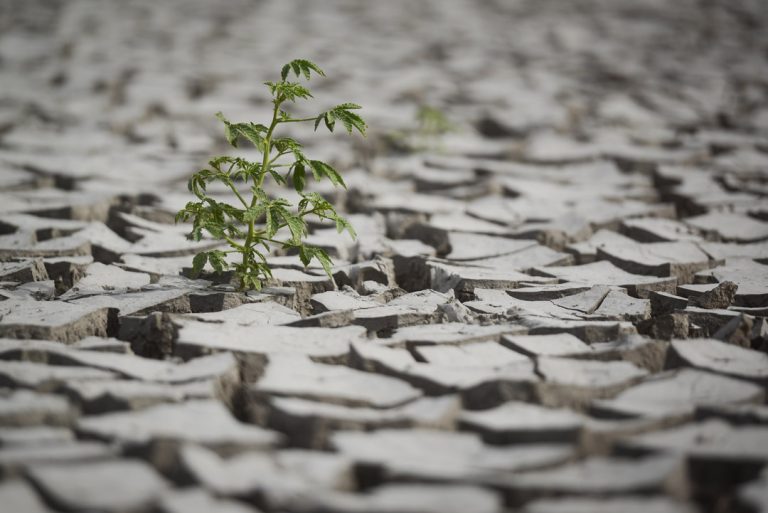14 de junio 2017

Ortega Grants Chinese Company a Huge Mining Concession

PUBLICIDAD 1M
PUBLICIDAD 4D
PUBLICIDAD 5D
Ortega is in a select club with Syria’s Bashar al-Assad and U.S. president Donald Trump.

Carlos Herrera | Confidencial
The Nicaraguan government’s refusal in December 2015 to subscribe to the Paris Agreement on climate change and global warming has produced a state of isolation in the diplomatic world and among the international NGOs that weigh in on the environmental debate. Ironically, President Donald Trump has now added the United States to this select club of isolationist countries, to which Syria also belongs.
The Paris Agreement was signed by 195 countries in order to bring about a decrease in greenhouse gas emissions through voluntary commitments from the countries. In that way, it hopes to hold the rise in global temperature by the end of the century to less than two degrees. The document was ratified only by 145 countries of the 195 signers.
Nicaragua’s self-exclusion now keeps the government from having access to more than $100 billion dollars that are being earmarked to fight the effects of climate change. These funds will be available in 2020, but following its decision, our country wouldn’t have the “moral authority” to make a request, explained Victor Campos, assistant director of the Humboldt Center, on the “Esta Noche” [“Tonight”] television program.
Although the Paris accord doesn’t prohibit a non-ratifying country from requesting assistance from its resources, Nicaragua assumed a position that isolated it from the rest of the world, including from allies such as Cuba, Venezuela, Ecuador and Bolivia, which have subscribed to the Agreement and have presented a plan of adaptation to climate change.
Campos, who was present at the Paris Summit in 2015, considers that Ortega’s diplomacy took the position they did in an effort to exercise “international leadership and gain the support of NGOs”, and of other countries in the world [saying it wanted a stronger agreement]. Nonetheless, the result it produced was completely the opposite.
In addition, the government’s position of defending international “environmental principles” lacks consistency with its domestic policy. “We have a huge environmental debt,” Campos explained. First, because deforestation continues advancing at a rhythm of 6% annually, and the efforts to save the Bosawas rain forest reserve have proven insufficient.
“One of the greatest sources of greenhouse gases is the degradation and loss of forests,” emphasized the assistant director of the Humboldt Center.
Salvador Montenegro, former director of the Aquatic Resources Research Center, agrees that Nicaragua’s criticism of the Paris Agreement was accurate, but the decision to oppose it altogether was a mistake, “through which we lost the opportunity to take advantage of the international consensus.”
The Nicaraguan government promised to build an inter-oceanic canal that would cut the distances that the world’s ships must travel, and in that way make a contribution to reducing greenhouse gases.
According to Campos, the impact of the canal on transport would be “insignificant” in environmental terms; rather, the mega-project is a threat to the Lake of Nicaragua (Cocibolca). The argument that the Canal would contribute to the protection of the environment and of Lake Cocibolca “is unsustainable,” he insisted.
Scientist Salvador Montenegro feels that Nicaragua hasn’t made enough effort to try and save Lake Cocibolca, whose waters could potentially serve the country’s thirst and irrigate farmland.
For now, the concern should be directed at changing the image that the government projected to the world by opposing the Paris Agreement “without offering any concrete proposals,” Campos accused.
The environmentalist believes that outside the scope of the reasons that the United States, Syria and Nicaragua might express, “the certain thing is that they were left in very poor standing with the rest of the world.”
The United States is responsible for 17.89 percent of the world’s greenhouse gases, while China emissions are approaching 40% of the world’s total. If the United States had continued with the agreement they originally ratified, they would have been expected to reduce their greenhouse gas emissions in 2025 by nearly 30% of the 2005 levels.
The United States’ exit from the Paris Accord also involves a long process for President Donald Trump. Campos mentioned that for the United States to be able to leave, it will take about four years, a period of time that coincides with the end of the controversial leader’s term in office.
In the face of the exit of this world power, others could take its place. Among the names mentioned is China, considered one of the nations that emits the most greenhouse gases in the world, and the European Union.
What remains to be seen still is who will fill the budgetary space that Trump leaves behind, since the US support represents 20% of the resources of the Paris Convention.
Translated by Habana Times
PUBLICIDAD 3M
PUBLICIDAD 3D